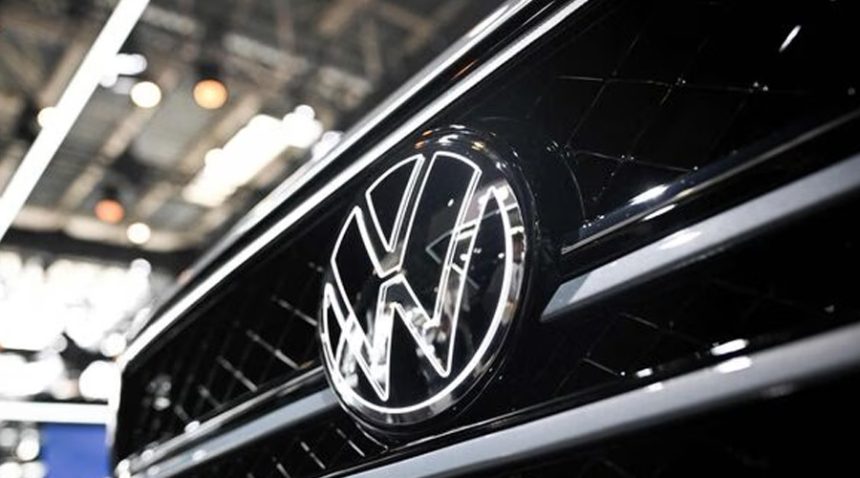Explore the impact on its operations and the broader automotive market
Volkswagen’s ongoing ₹1.4 trillion (approximately $1.4 billion) tax dispute in India has triggered a wave of debates involving regulatory enforcement, corporate accountability, and the broader investment climate in the country. As the German auto giant battles Indian authorities over the alleged misclassification of imported auto parts, the case carries implications far beyond one company’s tax bill—it could shape the future dynamics between multinational corporations and Indian regulators.
Background of the Dispute
At the core of this dispute lies a customs-related allegation. Authorities claim Volkswagen misclassified completely knocked-down (CKD) kits—essentially full car kits assembled in India—as individual auto components. This reclassification allowed Volkswagen to pay import duties ranging from 5% to 15%, rather than the 30% to 35% applicable to CKD units.
Over a 12-year period, this alleged misrepresentation resulted in what Indian authorities estimate as a significant underpayment of import duties. The total outstanding amount has now grown to ₹1.4 trillion, making it one of the largest tax demands ever levied on a foreign company operating in India.
Legal Arguments and Positions
Volkswagen has challenged the tax demand in the Mumbai High Court, asserting that Indian tax authorities delayed shipment reviews and failed to raise concerns in a timely manner. The company argues that, had authorities acted sooner, Volkswagen could have taken corrective action or adjusted its import classifications accordingly.
Volkswagen has described the tax demand as a “matter of life and death” for its operations in India, noting that such a large financial liability could cripple its business in one of the world’s largest automotive markets.
The Indian government, however, holds a firm stance. Officials argue that allowing Volkswagen to evade this liability would set a damaging precedent. Authorities warn that forgiving such a massive sum would undermine India’s tax enforcement credibility and encourage other corporations to delay disclosures or withhold information during regulatory inquiries.
Broader Impact on Foreign Investment
The dispute has stirred concern among international investors who monitor India’s business environment closely. India has made substantial efforts in recent years to present itself as an attractive investment destination, offering incentives, tax reforms, and infrastructure support to global firms. However, prolonged tax investigations and enormous retrospective demands like this one send mixed signals.
While the “Make in India” campaign and recent production-linked incentive (PLI) schemes have attracted global attention, regulatory uncertainty remains a key risk factor. Inconsistent tax enforcement and retrospective actions could dampen investor confidence, particularly among automakers, technology firms, and energy sector players evaluating long-term investments.
Similar Incidents and Industry Precedents
Volkswagen is not the only automaker to face scrutiny from Indian tax authorities. Kia Motors previously received a tax demand of around $155 million for similar alleged misclassification of imported goods. Unlike Volkswagen, Kia responded swiftly, corrected its declarations, and avoided prolonged litigation.
This comparison illustrates the different approaches companies can take when navigating India’s complex customs and tax regulations. Early compliance, transparent documentation, and proactive engagement with regulatory authorities often serve to resolve disputes before they escalate.
The contrasting outcomes of Kia and Volkswagen may influence how other multinationals assess their tax strategies in India, especially those operating under complex import-export structures.
Financial Repercussions for Volkswagen
The potential consequences for Volkswagen are not limited to the ₹1.4 trillion base tax demand. If penalties and accrued interest get applied, the total liability could reach close to ₹2.8 trillion. This sum would represent a substantial financial burden, particularly in a market where Volkswagen’s presence remains modest compared to other major players.
Volkswagen has historically maintained a mid-tier position in the Indian passenger vehicle market. While its cars like the Polo, Vento, and Taigun have gained brand recognition, the company has struggled to scale operations to match leaders like Maruti Suzuki, Hyundai, or Tata Motors.
An unfavorable verdict in this tax case could severely constrain Volkswagen’s ability to invest further, scale up operations, or introduce new products tailored for the Indian consumer.
Government’s Enforcement Perspective
From the government’s viewpoint, the case serves as a litmus test for the strength and consistency of India’s tax enforcement. Officials argue that regulatory bodies must remain firm when faced with non-compliance, particularly when the financial magnitude is as large as this case.
Officials have emphasized that backing down in this matter could lead to systematic erosion of tax compliance across sectors. If corporations perceive lax enforcement, the risk of non-compliance increases. The government continues to underline that fairness in taxation must go hand in hand with rule-based accountability for all market participants, regardless of origin or scale.
Additionally, the case provides an opportunity for policymakers to assess procedural improvements in customs enforcement. Streamlining inspections, accelerating shipment audits, and improving communication between agencies and businesses could prevent such prolonged disputes in the future.
Implications for India’s Business Reputation
The outcome of the Volkswagen case will resonate across India’s economic landscape. For multinational corporations watching from the sidelines, it will set a precedent on how India deals with legacy tax disputes. Favoring Volkswagen could signal leniency but risks weakening enforcement credibility. Ruling against Volkswagen may reinforce discipline but could strain India’s image as a welcoming business destination.
The decision also reflects the broader dilemma India faces: How to ensure a robust tax framework without deterring foreign investment. Global competition for capital remains fierce, and even minor inconsistencies in the regulatory environment can shift decisions on where to invest and scale.
India has shown great promise in sectors like EV manufacturing, green energy, semiconductors, and digital infrastructure. To maintain momentum, the country must balance regulatory authority with predictable and investor-friendly frameworks.
Way Forward
Resolving the Volkswagen dispute will require legal clarity, transparent proceedings, and perhaps a deeper policy review. A court decision may offer a definitive outcome, but regulatory reform can provide long-term certainty.
India could benefit from establishing clearer definitions and categories in customs classification, thereby reducing ambiguity in tariff applications. Moreover, offering faster dispute resolution mechanisms would help businesses avoid long-term litigation that drains resources and damages investor trust.
For Volkswagen, a settlement or compliance resolution could still provide a path forward, particularly if accompanied by operational restructuring and enhanced compliance protocols.
Volkswagen’s ₹1.4 trillion tax battle with Indian authorities goes beyond a corporate-taxpayer standoff. It encapsulates the evolving nature of India’s regulatory systems, its global economic aspirations, and the challenges in enforcing compliance while maintaining an investor-friendly environment.
The final verdict—legal or negotiated—will shape how multinational companies perceive the cost of doing business in India. A balanced resolution, rooted in fairness and legal rigor, will help establish India not only as a growth engine but also as a mature and reliable global investment destination.






